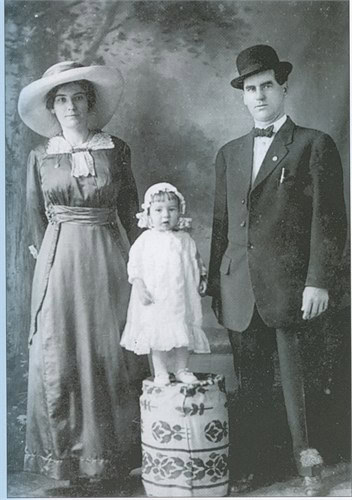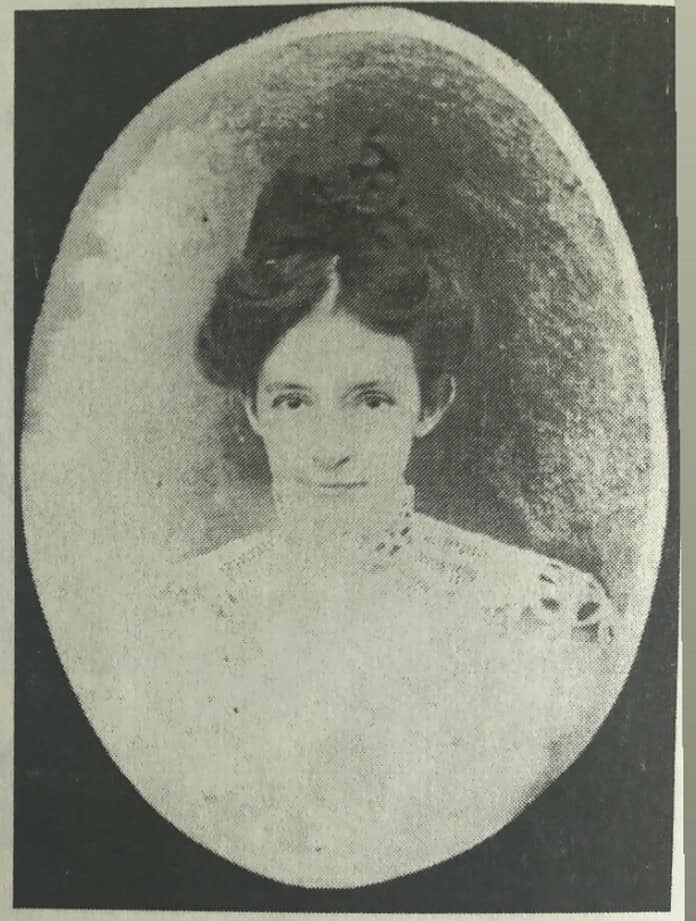By Blake Bell
Special to Hernando Sun
On April 9, 1865, Confederate General Robert E. Lee surrendered to Union General Ulysses S. Grant following the Battle of Appomattox Court House. News of the surrender quickly reached Brooksville, bringing hope that the Civil War was finally coming to an end. At Mt. Airy (now known as Chinsegut), the Ederington family rejoiced that the bloodshed would cease. Charlotte, the eldest daughter of Francis and Precious Ann, was just nineteen.
Years before the Civil War, Charlotte’s life had changed dramatically. As a young girl, she was surrounded by South Carolina’s high society, living just north of the booming state capital, and enjoying the privileges of a planter’s daughter. Trips to Charleston to purchase fine silks for dresses and bonnets were regular occurrences. Life in South Carolina before the war was marked by ease, peace, and prosperity.
That all changed when Charlotte was seven. Her father returned home from an exploratory trip to the frontier of Florida and told the Ederington family—his wife Precious Ann and their four young daughters—about the beautiful property he had purchased in Hernando County, which he named Mt. Airy. Soon after, the family prepared for the grueling journey to Florida, even as Precious Ann was pregnant with their fifth child. They packed up their South Carolina home and traveled nearly 500 miles from Fairfield County to Hernando County.
The first leg of their journey, through Charleston, Savannah, and Jacksonville, was enhanced by the energy of the bustling pre-war cities. But once they entered the rural interior of Florida, the family encountered new dangers: threats from hostile Native American groups, unfamiliar wildlife, and a more intense heat than even the hottest South Carolina summers.
Upon their arrival, the family lived in a bunker house built by Col. Byrd Pearson atop Mt. Airy, originally used as a watch post during the Seminole Indian Wars. The Ederingtons quickly began construction of the Manor house, which still stands today. Once complete, the family moved in, making their home on Brooksville’s little mountain.
The Ederingtons soon entered society, hosting parties and receptions at Mt. Airy. Their fellow South Carolinian and friend, Anderson Mayo, lived just a short distance away on Mayo Hill (now known as Snow Hill). Charlotte and her sisters welcomed seven new siblings into their growing family—two brothers and five sisters. As Charlotte entered her teenage years, she watched her father experiment with Florida agriculture, using trial and error until he identified citrus and timber as viable crops. She listened in on conversations about business dealings with the Faber Pencil Company in New York, the strategic importance of Bay Port for shipping, and the establishment of the Ederington-Wall General Stores in Brooksville and Tampa. From her mother, Charlotte learned the art of hospitality, entertaining dignitaries and local pioneer families.
By the time the Civil War began, Charlotte had lived in Florida for a decade. Her father’s business was thriving, and their rural community had a new name—Brooksville. Uncertainty and fear swept the nation, and Brooksville was not spared. Now sixteen, Charlotte watched her father negotiate a deal with the Faber Pencil Company—based in the enemy state of New York—to continue supplying timber for pencil production. She learned strategic thinking as he demanded payment in gold rather than Confederate bonds. She saw childhood friends and neighbors leave quiet Hernando County to fight on distant battlefields.
At the war’s end, Charlotte listened as her father read the Emancipation Proclamation, freeing enslaved workers—many of whom she had known her entire life. She learned that her father had invested $3,500 (equivalent to approximately $68,000 today) in Confederate bonds, now rendered worthless.
The post-war years were difficult across the South. As Reconstruction began, Charlotte was 19, and her life once again changed drastically. In 1866, her father, Col. Francis Ederington, died at the young age of 42. At the time of his death, he was one of the region’s leading businessmen—issuing promissory notes like a banker, conducting interstate trade, and operating a large farm. Charlotte and her mother quickly stepped in to manage the business and farming operations.
Three years later, in 1869, Charlotte’s mother, Precious Ann died, leaving Charlotte solely responsible for the farm, business dealings, and the care of her ten younger siblings. Life in Reconstruction-era Florida was not easy, especially for a 21-year-old woman. But Charlotte was determined to persevere. She educated and supported her siblings, continued profitable citrus and timber production, and held on to the land her father had loved so deeply. Though as a woman, she could not legally own property outright, her bond to the land was no less strong.
For two years, the resilient young Charlotte ran Chinsegut on her own. In 1871, she married Dr. Joseph Russell Snow, also from South Carolina. Dr. Snow’s family had a proud legacy; they had fought alongside Francis Marion—the “Swamp Fox”—during the Revolutionary War and their land known as Snow’s Island, was used as the military base for Marion’s militia. After their marriage, Dr. Snow moved to Chinsegut, and the couple renamed the property Snow Hill. They lived in the Ederington Manor and raised Charlotte’s younger siblings until they reached adulthood.
Joseph and Charlotte eventually purchased the shares of the “Home Place” from her surviving siblings. In turn, they distributed all other assets of the Ederington estate—gold, silver, stocks, bonds, and money—equally among the rest of the family. Together, they had seven children, all born in the Chinsegut Manor house.
Dr. Snow served as a Representative in the Florida State Legislature from 1889 to 1893 and as a Hernando County Commissioner from 1885 to 1889. He and Charlotte were active members of the Lake Lindsey Methodist Church. The Snows donated songbooks to churches and educational materials—arithmetic, English, and grammar books—to local schools. Charlotte also taught for many years at the Lake Lindsey School.
On July 21, 1893, Charlotte passed away at her beloved home, Snow Hill (now Chinsegut). Her children and grandchildren continued to live on the land her father had once fallen in love with. When Northerners later purchased the property from Charlotte’s children, they asked her son, Ernest Snow, and his family to remain and help them adjust to Florida life. The Snow family lived on the hill long enough for eighteen of Charlotte’s grandchildren to be born there.
Today, Charlotte’s legacy lives on as a pioneer Florida woman who overcame immense challenges. Her unwavering dedication to family and community continues to bless generations in Hernando County—and her love for the land remains evident in the Manor house she once called home—just steps away from Snow Memorial Highway.
Blake Bell, an attorney, served as the Mayor of the City of Brooksville for two terms. He serves on the Board of Trustees for the Tampa Bay History Center, teaches Sunday school, chairs the Ederington Family Foundation, and is a member of the Withlacoochee Chapter of the Sons of the American Revolution. A seventh-generation Brooksvillian, Bell is a direct descendant of Hernando County founding families Ederington, Mein, and Snow.

[Public domain photo]

